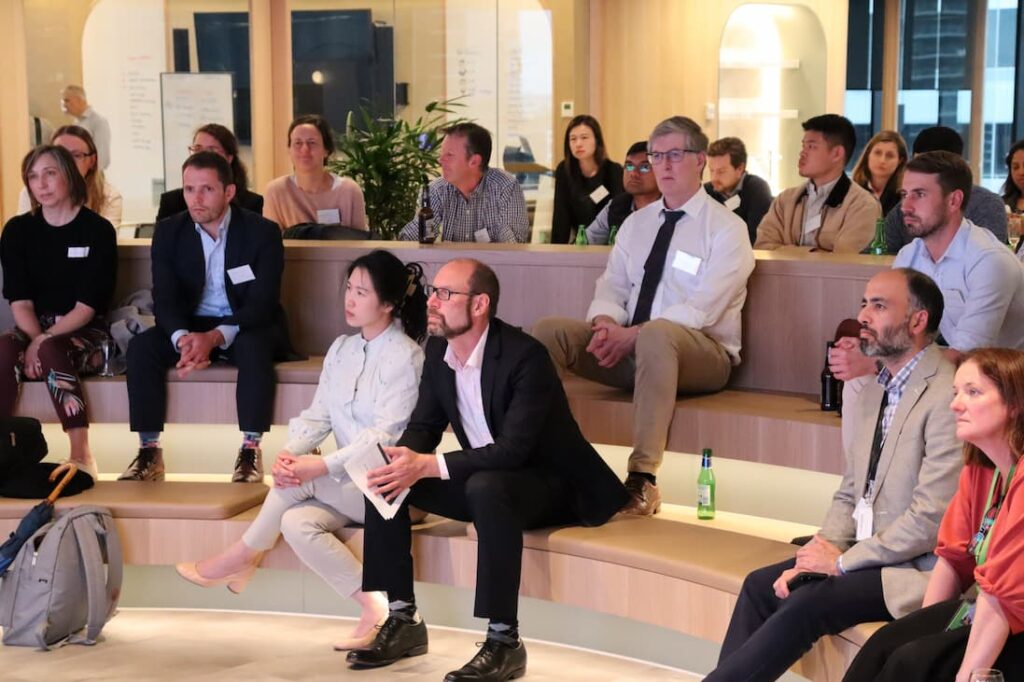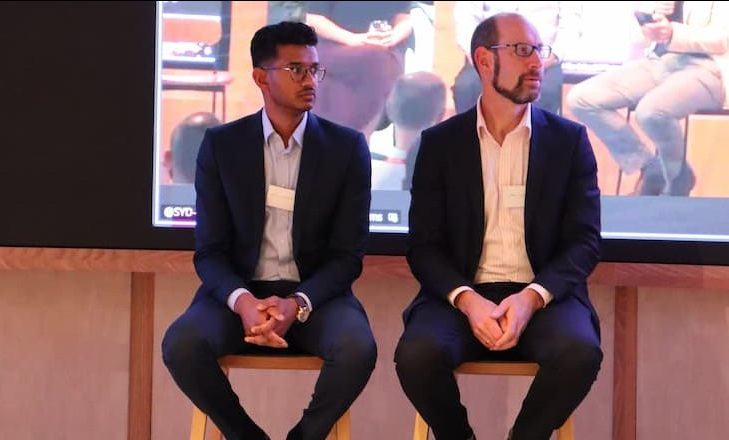The considerable embodied energy in building services was bought into the spotlight at a MECLA event held earlier this month.
The Materials and Embodied Leaders’ Alliance (MECLA) dedicated a hybrid event to building services, which are sometimes neglected compared to building materials with more obvious environmental costs such as concrete and steel.
“Building services is an often under-appreciated aspect of the embodied carbon conversation,” MECLA says. “HVAC, refrigeration, fire safety, escalators, lifts, and lighting account for significant upfront embodied carbon in a building, and an even larger portion of the whole-of-life embodied carbon of an asset because of maintenance. Collectively, building services represents around 15 per cent of the upfront carbon in commercial buildings and 30 per cent of the whole-of-life embodied carbon.”

Perspectives from the supply chain
The evening was hosted by integrated consultancy Aurecon across offices in Melbourne, Sydney, Brisbane and Adelaide. The evening began with a tribute to Aurecon’s Jeff Robinson, M.AIRAH, who was the Co-Chair of MECLA’s building services working group and was key in co-ordinating the event.
Four presenters then provided detailed discussions about their area of expertise.
Mark Vender, AIRAH Policy and Advocacy Manager and Co-Chair of MECLA’s building services working group, gave an overview of the issue of reducing embodied carbon in building services, highlighting the challenges and complexities and indicating the path forward.
Jennifer Elias, Associate Sustainable Design, Atelier Ten, presented a detailed study on façade shading and how this not only impacts operational emissions but also embodied carbon.
Andrew Nagarajah, Senior Engineer Sustainability, A.G. Coombs Advisory, presented the contractor’s perspective, particularly emphasising the saving opportunities in circular economy and prefabrication.
Gary Knox, F.AIRAH, Lead Engineer, Daikin Australia, shared the supplier view, highlighting what goes into a cooling unit, where it comes from, and how the EPD is developed.
Vender says coming together to share experiences and perspectives from professionals across Australia is invaluable.
“The true value of MECLA events is hearing perspectives from all across the building services sector,” Vender says. “Today, we heard from four different parts of the supply chain, all of which will have to work together to decarbonise Australian buildings. When you start having these conversations, you get the feeling that even this monumental goal is achievable.
“The fact that we were able to hold the event smoothly and simultaneously across four cities is a credit to our hosts, Aurecon.”
The night concluded with a panel and Q&A session, followed by networking and open discussion.
 Matt Dillon
Matt Dillon


Leave a Reply